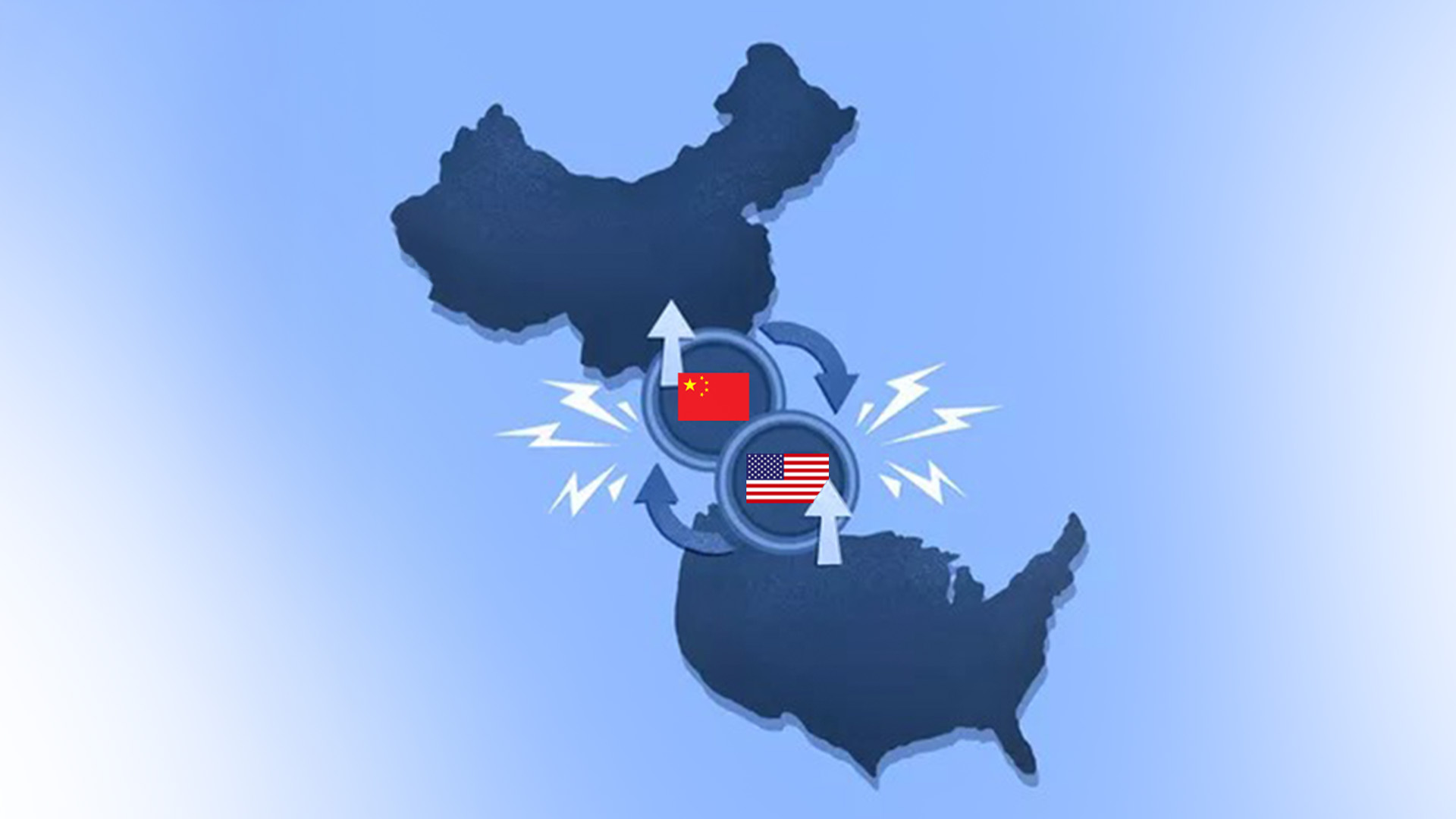Trade War Escalates: U.S. Treasury Accuses China of Undermining Global Economy
U.S. Treasury Secretary accused China of weaponizing rare earth exports to damage the global economy, escalating the trade war with 100% tariff threats. Despite public hostility, both sides are privately negotiating to salvage a potential Trump-Xi summit.

Erbil (Kurdistan24) – In a sharp escalation of rhetoric amid the deepening trade conflict between Washington and Beijing, U.S. Treasury Secretary Scott Bessent accused China of deliberately trying to damage the global economy following its sweeping new export restrictions on rare earth minerals, a move that has shaken markets and intensified fears of a global supply disruption.
“This is a sign of how weak their economy is, and they want to pull everybody else down with them,” Bessent said in an interview with the Financial Times on Monday, claiming that China’s latest trade measures reveal “serious internal weaknesses.” He added that “they are in the middle of a recession or depression and are trying to export their way out of it.”
The Treasury chief also described Chinese officials as increasingly hostile in closed-door meetings, saying that Premier Li had warned that the United States would face “hellfire” if negotiations did not go his way. His comments came just days after Beijing announced new curbs on the export of rare earth technologies and materials—minerals essential to the production of magnets used in the automotive, electronics, and defense sectors—over which China holds near-monopolistic control.
The renewed tension has rippled through diplomatic and economic channels, with President Donald Trump threatening to cancel a planned meeting with Chinese President Xi Jinping at the upcoming Asia-Pacific Economic Cooperation (APEC) summit later this month. Trump had already announced last week that the U.S. would impose a 100 percent tariff on all Chinese imports and enforce new export restrictions on critical software starting November 1, in what analysts have called the most severe escalation since the trade war began two years ago.
Beijing’s official response on Tuesday was uncompromising. “On the matter of tariff wars and trade wars, China’s position remains consistent: if you wish to fight, we shall fight to the end; if you wish to negotiate, our door remains open,” a spokesperson for China’s Ministry of Commerce told AFP, accusing Washington of pursuing “contradictory diplomacy” by threatening sanctions while seeking dialogue.
Yet beneath the fierce public rhetoric, both Washington and Beijing appear to be quietly exploring ways to defuse tensions. According to The Wall Street Journal, officials on both sides have been working behind the scenes to prevent the latest confrontation from derailing the Trump-Xi summit and to calm the financial turmoil that followed the tariff announcement.
The Journal reported that while Trump has maintained a hardline posture in public, he has privately urged his administration to signal readiness for dialogue to reassure investors after the market selloff triggered by his tariff declaration. “Don’t worry about China! It will all be fine,” Trump wrote on his social media platform over the weekend, adding that his administration wants to “help China,” even as it maintains pressure.
Bessent, meanwhile, reportedly told Chinese officials in recent engagements that the United States remains open to de-escalatory discussions—but warned that Washington would consider additional countermeasures if China does not withdraw or significantly modify its new rare earth export controls.
China’s Subtle Signs of De-escalation
Beijing, too, has shown signs of restraint. In a statement issued Sunday, the Ministry of Commerce emphasized that the export restrictions would be implemented in a “prudential and moderate manner,” noting that “China’s export controls are not export bans.” The ministry added that applications for civilian use would continue to be approved and that the new rules are primarily intended to restrict military end-uses, an apparent attempt to ease market fears and avoid further escalation.
The trade standoff has now expanded into new sectors. As reported by Kurdistan24, China on Tuesday imposed sanctions on five American subsidiaries of the South Korean shipbuilder Hanwha Ocean, accusing them of aiding a U.S. investigation into China’s dominance of the global shipping industry. This move came in response to a U.S. Section 301 trade investigation that concluded China’s control of the sector was “unreasonable and harmful to U.S. interests.”
Both countries have since imposed reciprocal “special port fees” on each other’s vessels—a tit-for-tat escalation that highlights how the trade war has begun to ensnare third-party companies and industries far beyond the original scope of tariffs and technology restrictions.
However, business leaders remain anxious. “The U.S. and China can choose to spur another cycle of action and retaliation, or they can choose a path that leads to de-escalation and negotiation,” Sean Stein, president of the U.S.-China Business Council, told The Wall Street Journal. “For the good of the economy, U.S. companies are hoping for the latter.”
Despite some encouraging diplomatic signals, the fundamental disagreements between the world’s two largest economies remain unresolved. Washington continues to demand that Beijing fully rescind its new rare earth export rules, while China insists on its sovereign right to regulate strategic resources.
With the planned Trump-Xi meeting still uncertain, and global markets on edge, the world now watches to see whether private diplomatic efforts will succeed in taming the public confrontation—or whether the trade war, already two years long, will enter an even more perilous new phase.